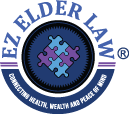
The Centers for Medicare and Medicaid Services released the 2023 SSI and Spousal Impoverishment Standards. Among the highlights are the following: Community Spouse Resource Allowance: $148,620 Maximum Monthly Maintenance Needs Allowance: $3,715.50 Income Cap: $2,742 (used to deterine whether a QIT is needed) Individual SSI rate: $914



